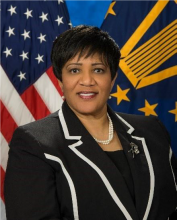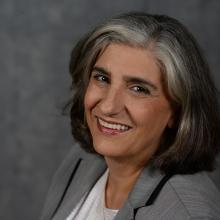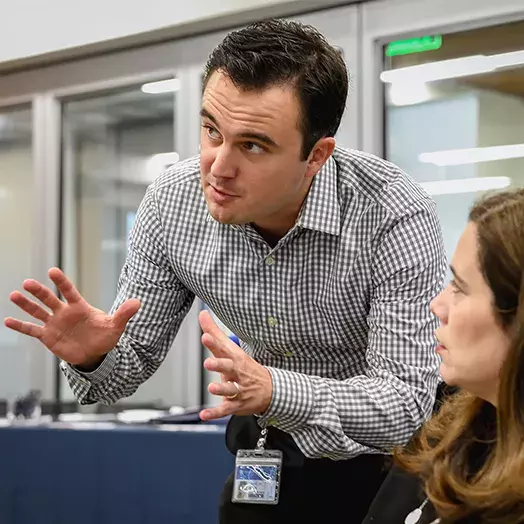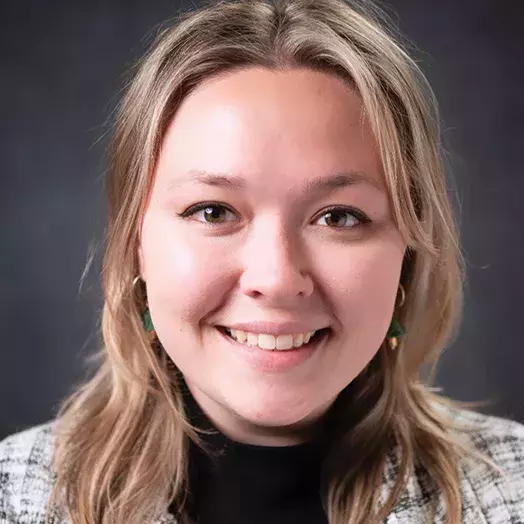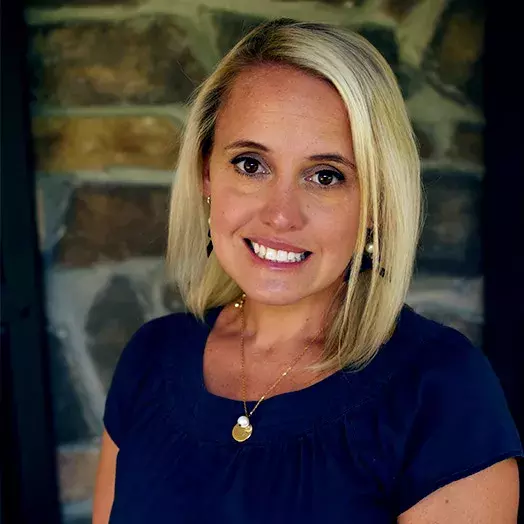More women than ever are entering the workforce with a college degree. And they’re doing it in the face of a global pandemic.
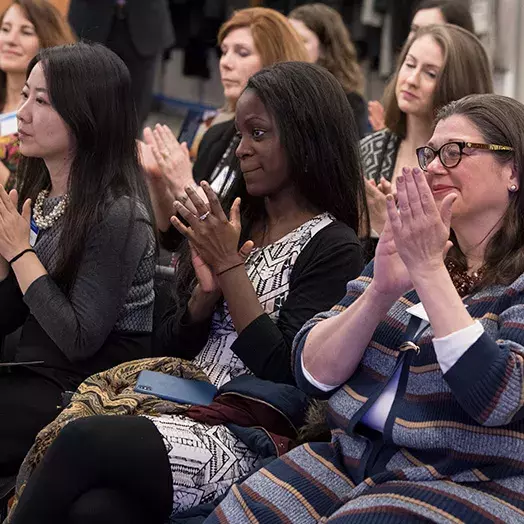
Women, equality, and business: Two executive leaders share what matters most
One-hundred-two years ago today, the 19th Amendment to the Constitution gave women the right to vote—though women of color largely had to wait until the Voting Rights Act of 1965 to exercise that right in equity with white women. And while decisions across the country seem to knock back women’s autonomy, new research shows that women are gaining significant ground, particularly when it comes to higher education.
More than half the students enrolled at Johns Hopkins Carey Business School identify as female. The U.S. Department of Labor found that 2019 marked the first year that most of the college-educated labor force identified as female, up 5 percent since 2000. In 2019, 29.5 million women in the labor force had at least a bachelor's degree, compared to 29.3 million men.
But the COVID-19 pandemic has been unforgiving. According to the Women in the Workplace report, which was discussed at a Carey panel on the topic, one in three women has considered leaving the workforce or downshifting their careers. That is a significant increase from one in four who considered it in the first few months of the pandemic. And last year, 42 percent of women felt burned out, compared to 32 percent in 2020.
Although several small classes of women graduated from Johns Hopkins University starting in 1971, a record-breaking 90 enrolled in the university’s undergraduate programs in September 1970.
Carey for women
Two women with long histories at Carey know the challenges of the business world as women fight for a seat at the table.
Ruby Harvey (Information and Telecommunications Systems ’96) held significant roles at Verizon Wireless and Booz Allen Hamilton before serving in federal positions at the US Department of Agriculture and then the Department of Veterans Affairs, where her executive director role focused on promoting small-business participation in VA procurements - especially for veteran-owned and service-disabled-veteran-owned small businesses. She now serves on the Carey Dean’s Alumni Advisory Board.
Mary Somers (Clinical Community Counseling ’94) joined Carey Business School in 2008, first in the Career Development Office before becoming an adjunct professor and executive coach in the Executive Education program. Her 30 years of experience has allowed her to assist professionals to achieve their personal and career goals. Somers is also involved with Worldwide Sheroes, which empowers women leaders.
Q: It’s been a number of years since you graduated but you’re still very involved with Carey. If a woman is looking to enroll here, how are they going to feel supported?
Ruby Harvey: Yes, I am very honored to still have an active role in supporting various Carey programs and initiatives. Women interested in Hopkins/Carey will find that there are many talented women in the various technical and business-related areas at Carey--which is excellent. I am very pleased and proud to see the growth in the number of women in the technical disciplines which is a positive evolution since I initially enrolled in the mid-nineties. Women will find that Carey provides exceptional resources and ensures that they have access to program professionals who will help position them for career success before and after graduation.
Q: What does Women’s Equality Day mean to you?
Ruby Harvey: Women’s Equality Day has special meaning to me. In fact, that meaning is multi-layered. I grew up in the south in a time and place where there were unfortunately inequalities in life when it came to education. In addition, professional employment opportunities were limited. It is very gratifying to see the opportunities that are equally available to both women and men of color, like myself now in 2022.
Q: How did you benefit from a master’s degree from Johns Hopkins University?
Ruby Harvey: Following my start at Hopkins in the information systems and telecommunications M.S. program, I was able to leverage my degree throughout the rest of my federal career in public service. I learned the technical aspects of information systems and telecommunications via the courses taught but I also benefited from the fact that my professors were industry leaders in their respective technical careers. This fostered an experiential learning culture amongst the students. We gained conceptual understanding of the courses taught as well as exposure to practical ways to apply what we learned in the workplace.
Q: You’ve spent most of your career working in the federal government. How difficult was it to rise up in the ranks in Washington?
Ruby Harvey: Less than one-third of one percent of all federal employees out of the two million plus member federal workforce rise to the senior executive service (SES) level in their government careers. I was privileged to be one of those who served at the SES level as a career public servant. It was truly an honor to do so especially as a Hopkins alumnus.
Q: What role do companies have when it comes to making work a more inclusive place for women?
Mary Somers: It’s critical that more women are named to leadership roles. I think it’s the only way to move forward. We’ve got to change the tenor of what we see every day. (Editor’s note: According to Catalyst, 6.4 percent of Fortune 500 company CEOs are women.)
What to Read Next
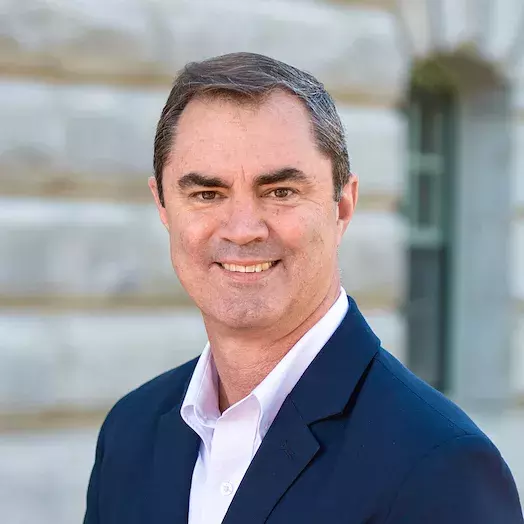
research
More Listening, Less ‘Mansplaining’ Make Men Better Allies to Women Co-WorkersQ: How can a student forward her career at Carey in a way that’s distinctive and might help her find that leadership role?
Mary Somers: There are many options – both credit (MS and MBA degrees) as well as non-credit certificate programs. For example, depending on the course offerings in Executive Education, students can come away with a solid understanding of finance, communication, design thinking, negotiation, leadership and more.
I’ve had the privilege of meeting many women in the Academy for Women and Leadership. In addition to developing valuable skills, they often create lifelong professional and personal relationships that carry on to this day. I think that’s incredibly important part of the process because they realize that they are facing many of the same challenges that are unique to women. Together, they can create strategies to address them. That’s why coaching and programs like these can be so powerful. Participants can talk about what they are learning and share their struggles as well as successes.
Q: The pandemic obviously greatly impacted women in work. How did it change women’s learning experiences?
Mary Somers: As most experienced in March 2020, we immediately transitioned to a remote environment due to the pandemic. I worried that our community spirit would be negatively affected. During the fall of 2020, I ran a Women in Leadership course through the Carey Business School Career Development Office that was all virtual. It was a six-week commitment, yet, we consistently had over 30 women participate from around the world. They said it was one of the most moving experiences thus far because they felt connected and met new classmates that they otherwise would not have had the chance to know. It's a great example of the importance of bringing people together and the impact that it can have.
